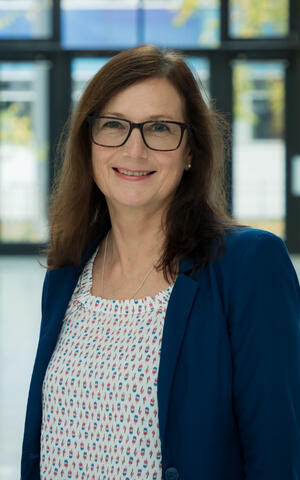What are you reading, Ms Nibbe?
Petra Nibbe
DAS MANGELNDE LICHT — the title makes literal reference not only to the lack of light in rear courtyards in Tbilisi that are a central setting for the 800-page work, but also to the country of Georgia, in the late 1980s and 1990s.
Four young girls find a deep, lifelong friendship, while political chaos unfolds around them and those who benefit from it become part of their lives and of society. Together, we roam the streets of Tbilisi, the rear courtyards, the parks, the mountains, and the Georgian landscape with Keto, Nene, Dina, and Ira. We empathize with the life of the student Keto, from whose perspective the story is narrated. She later dedicates herself to the restoration of old churches, as long as this is possible in light of the entanglements of her family.
Thirty years later, the women meet again in Brussels on the occasion of a photo exhibition. But one of them is missing—the photographer, Dina. She reached a different decision, as already becomes clear on the first pages. She was defeated by her contradictions. Over an intoxicating evening, the friends thus, in 2019, venture a look at the past and experience themselves and the world anew. With distance, the gaze expands .... The ease of the friendship of their youth is torpedoed by the events of the past, between coercion, need, wanting to move forward, and the appeal of an independent life. Yet their affection for one another lives on.
As already in her successful novel The Eighth Life, in Das Mangelnde Licht, which will hopefully soon be published in English translation as well, Nino Haratischwili tells of the upheavals in Georgia following the end of Soviet rule. Of a life between dissolution, violence, criminality, hostility toward women, and brutality, and shaped by a lack — not only of light. On the one hand. Since everything also tastes like an awakening, affection, and empathy, is colorful and shines.
Despite all the adversities, the girls Keto, Ira, and Nene, live and continue developing themselves further, have friends, travel, strike out in new directions, choose a profession, and thrive in their lives. Their brothers and male friends mainly submit to the stipulations of the patriarchal, misogynistic society. This is also an expression of the social structure of the time. In Das mangelnde Licht, the main character has landed and arrived in Germany, just as in Haratischwili’s novel The Eighth Life — whose protagonist lives in Berlin. The author lives in Hamburg.
Why should one read Das mangelnde Licht? The novel empathetically recounts the social and political circumstances in Georgia of the past thirty years in a very topical and vibrant manner: through the attempt to transition to a democracy and a free society between corruption and united social development, based on the life stories of four women whose different personalities we get to know up close, immerse ourselves in when reading. That’s why it is our literature tip!
When I was asked if I could imagine presenting a book here in this section, I immediately said yes, since I regard myself, at least some of the time, as a “bookworm.” The choice of book was already a bit more difficult. I did not want to present a violent “crime novel” to you (even though I am a fan of such novels), such as The Fallout by Yrsa Sigurdadottir—which might make it difficult for you to fall asleep after reading it. I also did not want to present to you the wonderful, but less edifying novels by Michel Houellebecq—from Anéantir to Submission—since they are quite warped or extreme, although also very entertaining. Thus, Das Mangelnde Licht, a magnificent contemplation of friendship.
“Das mangelnde Licht” is only available in German / Frankfurter Verlagsanstalt






